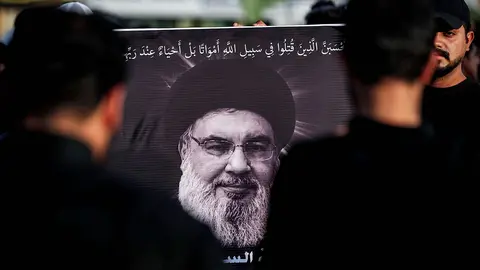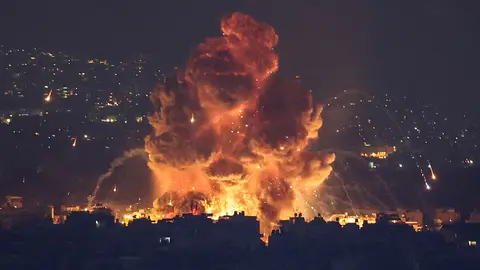Netanyahu at the end of the tunnel

The international community was virtually unanimous in its understanding that in the face of such an attack, the right of self-defence was legitimate. But in 2003, when George W. Bush's government took the decision to invade Iraq to prevent the alleged existence of weapons of mass destruction in the hands of Saddam Hussein, public opinion was divided between those who supported preventive action against terrorism in different scenarios such as Iraq, and those who questioned the decision as unilateral and contrary to international law.
Soon after, the US government progressively modified the definition of the strategy, making the promotion of democracy in the Middle East one of the objectives of the military intervention. But war, casualties, escalating conflict and terrorism took their toll on society and the climate of opinion changed.
The arrival of the Obama administration failed to rebuild the weakened strategy of the so-called ‘neocons’, and their vague new doctrine was subsequently overwhelmed by the violence of the Arab Spring and the conflicts in Syria and Iraq when the Islamic State emerged. Although history seems reluctant to acknowledge the success of the war on international terrorism, the fact is that the initial objective of the actions undertaken in 2001 was partially achieved. However, history coincides in highlighting the tragic consequences of the whole process in the region, the deterioration of the image and leadership of the United States, and the murky legacy in the political and collective memory of the period.
One year on from Hamas's attack on Israeli civilians, the collective memory does not forget the atrocities perpetrated by the terrorist group, either in Israel or in international public opinion as a whole.
Almost unanimously (because groups such as Hezbollah applauded the indiscriminate assault, rape and murder of women and children), leaders and citizens condemned the horrifying acts, while states and international organisations, for the most part, recognised Israel's right to respond in self-defence. Immediately, almost in parallel, the most critical sectors of Israel inside and outside the region spoke out against the military actions in Gaza, calling for avenues of negotiation with terrorists who had killed 1,200 people and kidnapped 250 hostages.
The Israeli army's offensive this year, with an unjustifiable number of casualties (41,000) among Gaza's civilian population, including women and children, and the extension of actions towards Hezbollah's target in southern Lebanon have provoked massive social and governmental pressure for Netanyahu to halt operations and decree a ceasefire.
But the Prime Minister has turned a deaf ear to the demonstrations and criticism, and has instead proposed modifying the strategy to link the end of the conflict to a vague regional political recomposition and the construction of a new order in the Middle East. This new uncertainty now adds to the risks that Israeli society has been accumulating for decades, and which have not yet disappeared after a year of pain and violence.
Neither regional nor international politics have shifted in any direction that would shed light on a different, or better, future for Israel than the one shaped before the Hamas attack within the framework of understanding initiated by the Abraham Accords. While the structure of terrorist groups has been significantly weakened, Israel has not become a more credible strategic actor, nor sufficiently secure, to be willing to engage in cooperation with other neighbouring countries.
The vagueness of this change in policy objectives suggested by Netanyahu probably hides a web of partisan proposals and interests of the groups that support him in government. These are probably impossible to implement in the context of an open conflict, nor to reach a consensus in a process of negotiation and ceasefire. And while this internal complexity remains, Netanyahu chooses to prolong hostilities, hoping that the end of the political tunnel might be illuminated by the success of the armed actions, whose initial objective was to reduce the operational capacity of the terrorist groups. However, history is clear in this regard: if military action does not have a well-defined political objective, the strategy leads to a dead end.



